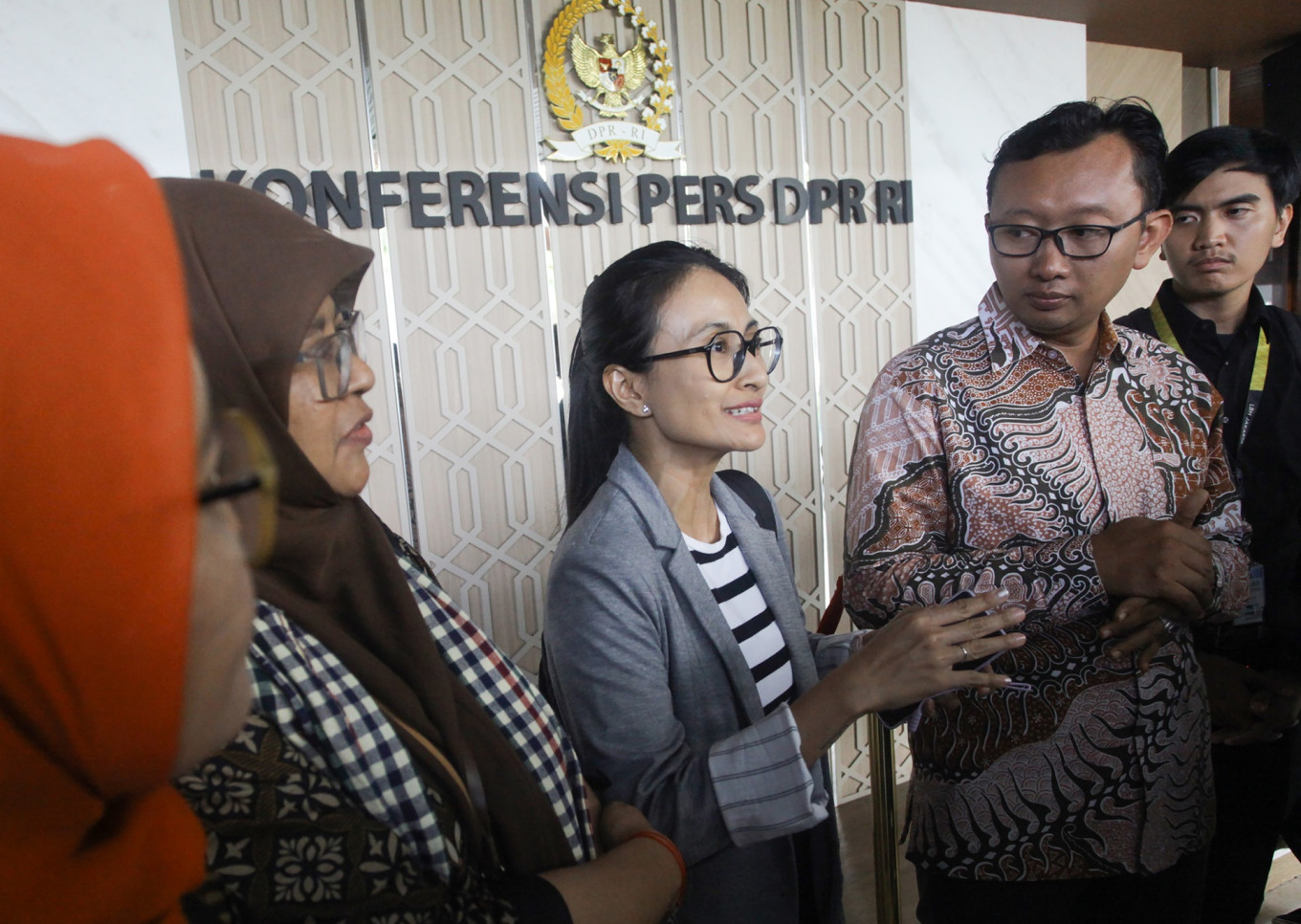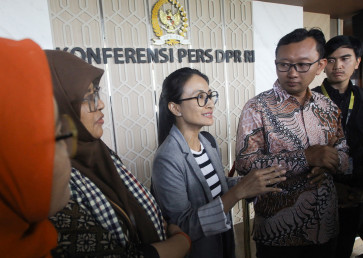Popular Reads
Top Results
Can't find what you're looking for?
View all search resultsPopular Reads
Top Results
Can't find what you're looking for?
View all search resultsHouse of hypocrisy
The amended Criminal Law Procedures Code (KUHAP) should be challenged at the Constitutional Court as it expands the police’s authority regarding preliminary investigations, detention, search and seizure, and wiretapping, which is prone to abuse.
Change text size
Gift Premium Articles
to Anyone
 Representatives of a coalition of civic organizations speak to journalists following a closed-door meeting with House of Representatives Commission III chair Habiburokhman of the Gerindra party at the Senayan legislative complex in Central Jakarta on April 8, 2025. The activists attended the meeting that was hosted by the Commission III chair to hear their suggestions on the deliberation for a revision to the Criminal Law Procedures Code. (Antara/Muhammad Iqbal)
Representatives of a coalition of civic organizations speak to journalists following a closed-door meeting with House of Representatives Commission III chair Habiburokhman of the Gerindra party at the Senayan legislative complex in Central Jakarta on April 8, 2025. The activists attended the meeting that was hosted by the Commission III chair to hear their suggestions on the deliberation for a revision to the Criminal Law Procedures Code. (Antara/Muhammad Iqbal)
T
he House of Representatives has evidently failed to learn from its own tone-deafness, enacting yet another bill into law despite public opposition.
The Criminal Law Procedures Code (KUHAP), amended for the first time in 44 years, is widely viewed as an expansion of the National Police’s authority regarding preliminary investigations, detention, search and seizure, and wiretapping. Critics rightly fear this opens the door to unchecked abuse.
The passage of this law on Tuesday blatantly contradicts the spirit of police reform highlighted by a recent Constitutional Court ruling, which bans police from holding civilian roles, as well as President Prabowo Subianto’s mandated review of the institution following the deadly protests in late August.
Beyond fitting a familiar legislative pattern, in which the House passes laws that benefit the government’s interests over the people’s, the new law, when it comes into effect on Jan. 2, 2026, offers no comfort to a public already wary of the military’s increasing role in governance and state-owned enterprises, following the amendment to the Indonesian Military (TNI) Law earlier this year.
Habiburokhman, the chairman of House Commission III overseeing legal affairs, has vehemently defended the new KUHAP, dismissing civil society concerns as "hoaxes." He went on the offensive, labeling critics "lazy" for allegedly failing to read the law’s appendix, which details the limits of new police powers, such as "undercover purchases" during preliminary probes.
The lawmaker representing Prabowo’s Gerindra party further argued that the new law is an improvement over its predecessor, citing explicit protections for women and vulnerable groups. He also noted that the law mandates all police investigations and questioning sessions be recorded via CCTV to prevent officer misconduct.
Given the fierce resistance from civil society groups, the new law is almost certain to be challenged at the Constitutional Court. However, if lawmakers like Habiburokhman sincerely wish to avoid such a backlash, they must significantly improve the legislative process itself.

















